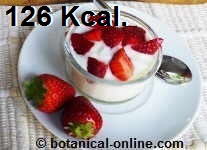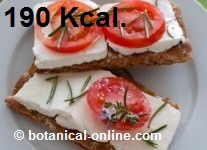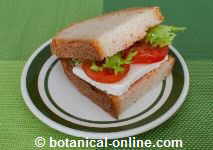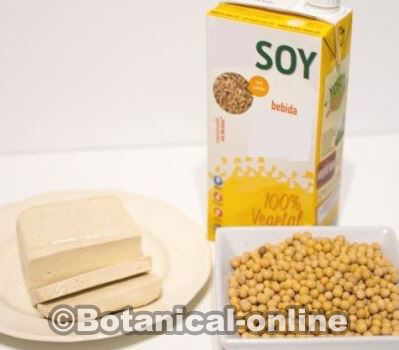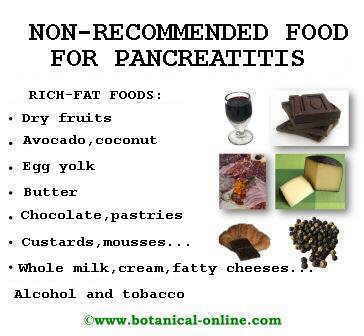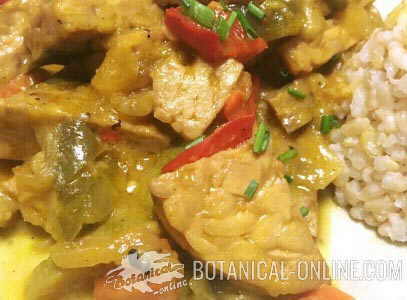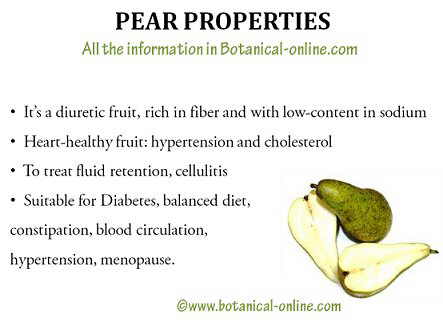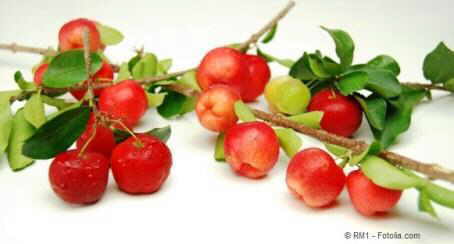Contents
What is a balanced and healthy weight loss diet like?
Breakfast diets to lose weight
The morning meal is usually divided into two, one when you wake up, breakfast, and another mid-morning, lunch.
Breakfast, even in weight loss menus, is the most important meal of the day.
It provides three food groups:
- Whole grain and sugar-free cereal: Oatmeal, cornflakes, whole wheat bread, muesli, rice pancakes, etc.
- Skimmed dairy or equivalent, source of calcium and protein: Milk, yogurt, cheese, vegetable drinks.
- Fruit, juices or natural smoothies.
It should provide about 25% of the daily energy. Therefore, in a 1,800 Kcal diet, breakfast should provide 450 calories.
EXAMPLES OF DIET BREAKFASTS
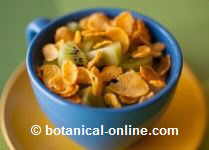 Yogurt with cereals and fruit 260 Kcal. | 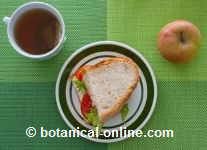 Vegetarian sandwich, fruit and infusion 350 Kcal. | 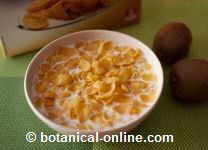 Milk with cereals and fruit 230 Kcal. |
Lunch on weight loss diets
It is the meal of the day that should provide the most calories, between 30 to 35% of the daily energy.
It provides the following food groups:
- Cereal or legume: Source of carbohydrates. Diets without carbohydrates slow down the metabolism and have a yo-yo effect. Every balanced weight loss diet should include them. Unrefined foods are used: brown rice, corn, quinoa, lentils, chickpeas, soybeans, etc.
- Vegetables or salad: They provide fiber, a lot of magnesium, folic acid and many other benefits.
- Fat-free protein: In diets with meat, remove visible fat and prioritize white fish. Vegetarians can eat eggs (without yolk), 0% fat cheese + skimmed yogurt for dessert, etc.
- Fruit with little sugar or small portions: Such as tangerines, small apple, strawberries, loquats, 1 cut of pineapple or watermelon, etc. Fruit provides beta-carotene and vitamin C. If you eat a salad (it already contains vitamin C), you can optionally replace the dessert with yogurt.
It should provide about 35% of the daily energy, therefore:
- In a 2,000 Kcal diet, a lunch should provide 700 Kcal.
- In a 1,800 Kcal diet, a lunch should provide 630 Kcal.
- In a 1,500 Kcal diet, a lunch should provide 525 Kcal.
EXAMPLES OF DIET LUNCHES
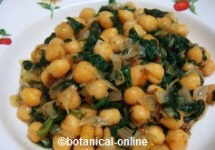 Chickpeas (60 g. raw) with spinach Hake (120 g.) with seasoned tomato (100 g.) An apple (200 g.) Total oil: 20 ml. (2 tablespoons) TOTAL CALORIES = 616 Kcal. | 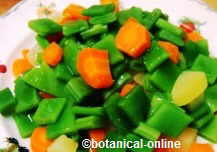 Tender beans with 1 potato (200g.) Cheese omelet (1 egg) (30 g.) and lettuce salad Skimmed yogurt with 1 kiwi (100 g.) Total oil: 10 ml. (1 tablespoon) TOTAL CALORIES = 548 Kcal. |
Snack of diets to lose weight
Snack is necessary in weight loss diets because it contains foods with few calories but that provide important nutrients, such as calcium or vitamin C.
You should not skip the snack, as too few calories would be ingested and this would cause a slow metabolism and a rebound effect. It is recommended to play sports or go for a brisk walk.
Theoretically, it should provide two of the three breakfast food groups.
It can provide approximately 10% of daily energy, therefore:
- In a 2,000 Kcal diet, a snack should provide 200 Kcal.
- In a 1,800 Kcal diet, a snack should provide 180 Kcal.
- In a 1,500 Kcal diet, a snack should provide 150 Kcal.
EXAMPLES OF DIET SNACKS
Diet dinner to lose weight
Dinners should have the same components as lunch but with many fewer calories. They must provide 25% of the daily calories needed, therefore:
- In a 2,000 Kcal diet, a dinner should provide 600 Kcal.
- In a 1,800 Kcal diet, a dinner should provide 540 Kcal.
- In a 1,500 Kcal diet, a dinner should provide 450 Kcal.
![]() More information on natural treatment of obesity and plants and diets to lose weight
More information on natural treatment of obesity and plants and diets to lose weight

